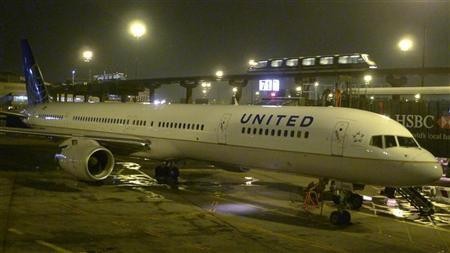United Airlines showed that they take their security seriously as a security researcher was barred from flying because of a seemingly threatening joke he tweeted earlier this week.
Chris Roberts posted a tweet on Wednesday, saying that he could release the oxygen masks while he was on the plane. What did not help is that the tweet contained supposedly sensitive data. He included the cryptic phrase "Box-IFE-ICE-SATCOM" which pertains to the plane's engine system.

After the plane landed in Syracuse from Denver, Roberts was detained by agents of the FBI. He was questioned for more than four hours and had his MacBook pro, iPad and storage devices confiscated by the agents, according to Ars Technica.
United Airlines was not finished with Roberts yet. Hours before a flight on the Saturday evening of the same week towards San Francisco, Roberts was called by the United Corporate Security, saying that he will not be able to fly. He was told that a mail would arrive within the next 14 days on why he was barred from the flight.
Fortunately, Roberts was still able to book another San Francisco flight on the same night. He arrived three days early for a presentation that he is slated to present at a RSA security conference next week.
United Airlines' decision is not really an absurd one. Roberts' situation is quite similar to people who make bomb jokes, which are taken very seriously by security no matter how funny it is.
Roberts recently discussed with the media regarding airline system vulnerabilities. In one interview, he said that they could turn a plane's engines off while 35,000 feet above the ground without alarming the pilots in the cockpit, according to ABC News.
The security researcher also admitted that he managed to connect to a box located under his plane seat and viewed fuel and engine data from the aircraft.
Nate Cardozo, Roberts' attorney from the Electronic Frontier Foundation, said that they were disappointed with United Airlines' decision. Cardozo said that computer security researchers should not be perceived as a threat, but rather vital allies.



























